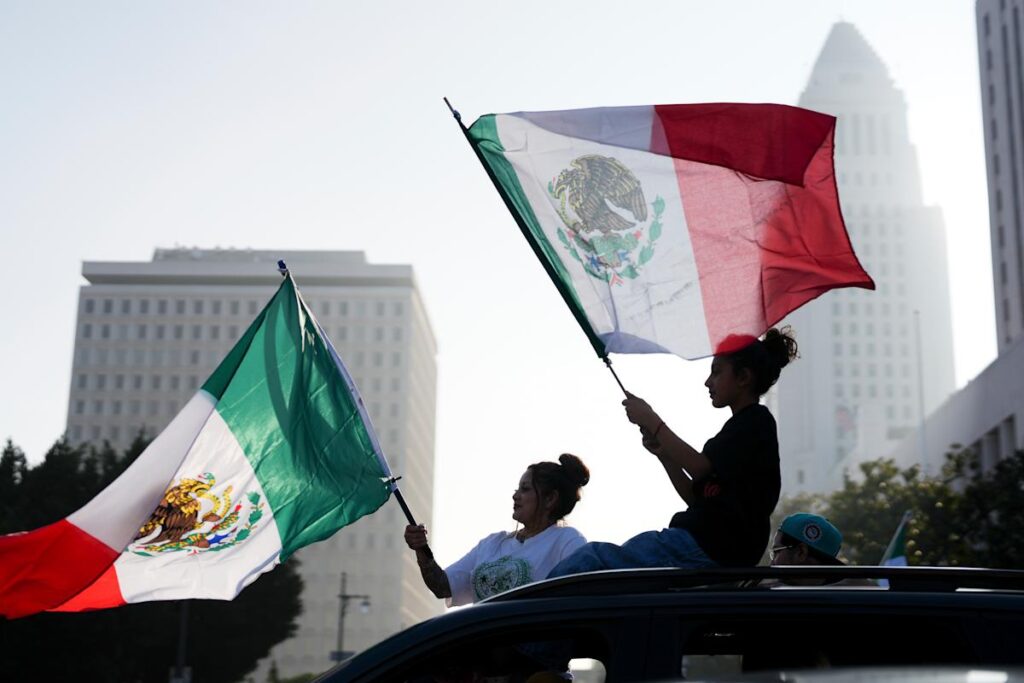When a Guatemalan man sued the Trump administration in March for deporting him to Mexico despite a fear of persecution, immigration officials had a response: The man told them himself he was not afraid to be sent there.
But in a late Friday court filing, the administration acknowledged that this claim — a key plank of the government’s response to a high-stakes class action lawsuit — was based on erroneous information.
Immigrations and Customs Enforcement officials now say they have no record of anyone being told by the man, identified only by the initials O.C.G. in court papers, that he was unafraid of going to Mexico. The error, they say, was attributable to a “software tool” known as ICE’s “ENFORCE alien removal module” that tracks individual deportation cases and allows staff to insert comments.
“Upon further investigation … ICE was unable to identify an officer or officers who asked O.C.G. if he feared a return to Mexico,” said Brian Ortega, assistant field office director for ICE’s Enforcement and Removal Operations, in a sworn statement to the federal judge overseeing the lawsuit.
The mistake may have been costly: The judge overseeing the lawsuit said last month he did not order the administration to facilitate O.C.G.’s immediate return from Mexico in part because of the dispute. Instead, U.S. District Judge Brian Murphy, a Biden appointee based in Massachusetts, ordered expedited fact-finding, which helped unearth the mistake.
ICE’s acknowledgment is the latest in a string of errors that have led judges to fault the administration for attempting to carry out President Donald Trump’s mass deportation campaign at a breakneck pace — often at the expense of due process.
It occurred in the case of Kilmar Abrego Garcia, a Salvadoran man — accused of gang ties by the administration — who was hurriedly deported to his home country in violation of a court order that found he could be a target for violence by a local gang. It also occurred in the case of Daniel Lozano-Camargo, a Venezuelan man deported to El Salvador in March despite a court-approved settlement requiring the administration to adjudicate his asylum claim first.
Many of those targeted by Trump’s invocation of the Alien Enemies Act — a wartime power the administration has wielded to speed deportations of those the government deems “terrorists” or “gang members — have claimed they were erroneously identified as members of a violent Venezuelan gang. The Supreme Court on Friday blocked Trump from another round of Alien Enemies Act deportations, warning that the administration had failed to provide a meaningful chance for those targeted to contest their designation as gang members.
O.C.G.’s case is part of a separate lawsuit against the administration’s decision to rely on so-called “third countries” for deportation. Under the administration’s policy, if an immigrant’s home country won’t accept them, or they have a legitimate fear of returning, authorities may send them to an alternate country instead.
However, Murphy has blocked such deportations without notice, saying those deported under the “third country” policy must have a similar opportunity to raise challenges and legitimate fears of torture or persecution.
O.C.G.’s case was one of the original factors in Murphy’s decision. The man said he fled Guatemala in April 2024 to escape persecution. He claims that while crossing through Mexico, he was targeted for being gay, raped and held captive until his sister paid a ransom. He then arrived in the United States.
In February 2025, a judge granted him withholding of removal to Guatemala, finding his fear of persecution to be legitimate. But the administration quickly deported him to Mexico without notice, his attorneys sa
In his ruling blocking third-country deportations without notice, Murphy referenced the administration’s claim that O.C.G. had told ICE he was unafraid to return to Mexico, but he said he didn’t buy it because it was based on hearsay from Ortega. However, because of the dispute, Murphy declined to immediately order the government to facilitate O.C.G.’s return from Mexico. It’s unclear whether the admission from the Trump administration will alter his thinking.
The administration has appealed Murphy’s order to the 1st Circuit Court of Appeals, which sided with Murphy on Friday and rejected the government’s effort to quickly lift the block on third-country deportations.
Read the full article here


